The English have never built anything to equal their cathedrals. These structures have towered over the landscape for almost a millennium – ancient, magnificent, gigantic.
They dominated their surroundings from the 12th century to the 19th. No museum or great house conveys the same sense of awe or the same architectural richness. The greatest cathedrals rank among the artistic masterpieces of Europe.
- The best cathedral and abbey choirs across the UK
- The oldest castles in Britain: Explore Britain's ancient fortifications
It is significant that while English parish churches have long been in steady decline, cathedrals have not. While churchgoing has dropped below a million nationwide and continues to fall, cathedral-worship has risen by a third in just 10 years. Tourists flock to cathedrals. Pilgrims trek to them. Residents of cathedral cities enjoy exceptional rises in house values. Cathedrals plainly offer an appeal beyond the religious, musical, cultural, social and perhaps contemplative. People find anonymous peace and comfort in cathedrals they find less available in parish churches.
As a non-worshipper, I find the aesthetic enjoyment of a cathedral quite different from that of a grand house or an art gallery. The first impression of Durham, massive on its rock, is simply breathtaking. The ‘Constable’ view of Salisbury across its water meadow is an icon not just of the English cathedral but of England itself. Likewise the west front at Wells, the interior of the octagon at Ely and Bell Harry tower at Canterbury. These are the crown jewels of English history.
The 25 medieval cathedrals are unique in being the oldest buildings in continual use in the land. Unlike castles, they are not ruins. They usher us into the presence of antiquity, with a setting that deepens our appreciation of an old painting or sculpture, stained glass or woodwork, the tiniest carving or the mightiest vault.
Much of this is little known. The most exquisite church artistry I have encountered is in the leaves in Southwell chapter house, each botanically precise. They are product of a decade at the turn of the 14th century, when a band of masons of extraordinary talent went into the Nottinghamshire countryside and returned to create a Kew Gardens of stone. How many have ever seen them?
I have come across no buildings in the world that, as a group, compete with these cathedrals. Most display towers and steeples that dominate their surrounding landscapes – Lincoln, York and Salisbury being only the most spectacular examples.
At moments of memorial and celebration, at Christmas and Easter, cathedrals become the ritual heart of the nation. Thousands flock to them to participate in ceremonies with which they instinctively identify, be they of all faiths or none.
Cathedrals should be seen as far more than big churches. They are what the poet Philip Larkin called, “serious houses on serious earth,” places where “all our compulsions meet” and are “robed as destinies, and that much cannot be obsolete”. They are very precious and thankfully very safe.
Best cathedrals in England to visit
Durham cathedral

Durham Cathedral is a bruiser among cathedrals. It was built next to its castle, asserting the dominance of Norman rule in the rebellious north. Its great towers and buttresses seem designed to repel all comers. The interior reinforces this impression. Two arcades of giant drum columns pile up to support the earliest vaulted stone roof in England.
Plunge behind this muscularity and we find a different Durham. The Galilee Chapel has delicate Romanesque arcades, reminiscent of Cordoba. The shrine to the local saint, Cuthbert, is backed by the spindly gothic Neville screen, while the Chapel of Nine Altars is almost a cathedral in itself.
Durham’s medieval composition is rivalled in Europe only by France’s Avignon. I think it wins.
Canterbury Cathedral
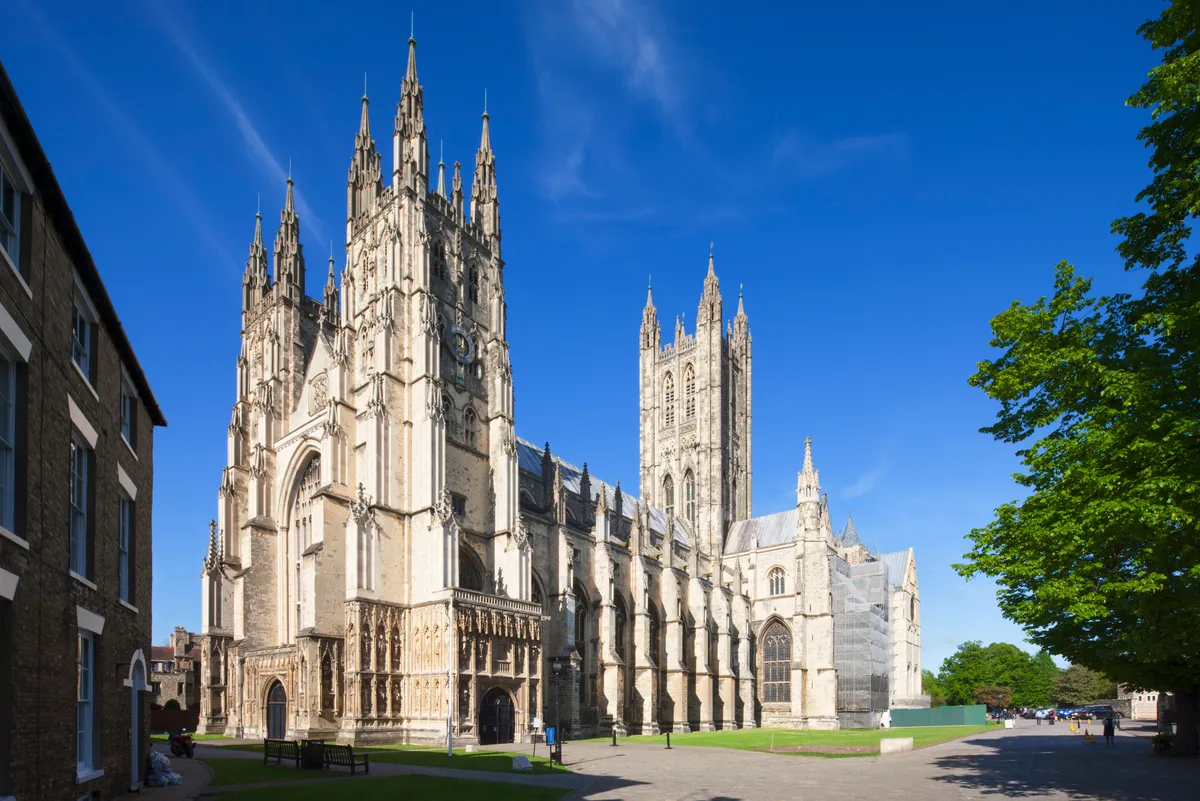
The queen of England’s cathedrals remains the church’s outstanding work of art. Its silvery towers rise over the landscape from the distant Kent hills, once beckoning pilgrims to the shrine of the murdered Thomas a Becket.
Canterbury cathedral’s quality lies in displaying relics of all periods of church architecture. The crypt survives from the early years of the Norman conquest, rich in Romanesque carvings. The crossing is crowned with a giant Tudor fan vault. The nave is a masterpiece of Perpendicular design by Henry Yevele, a forest of golden columns fractured by a glancing sun. Round about are the remains of the old monastery close, still walled and evocative of 1,000 years of history.
Lincoln Cathedral
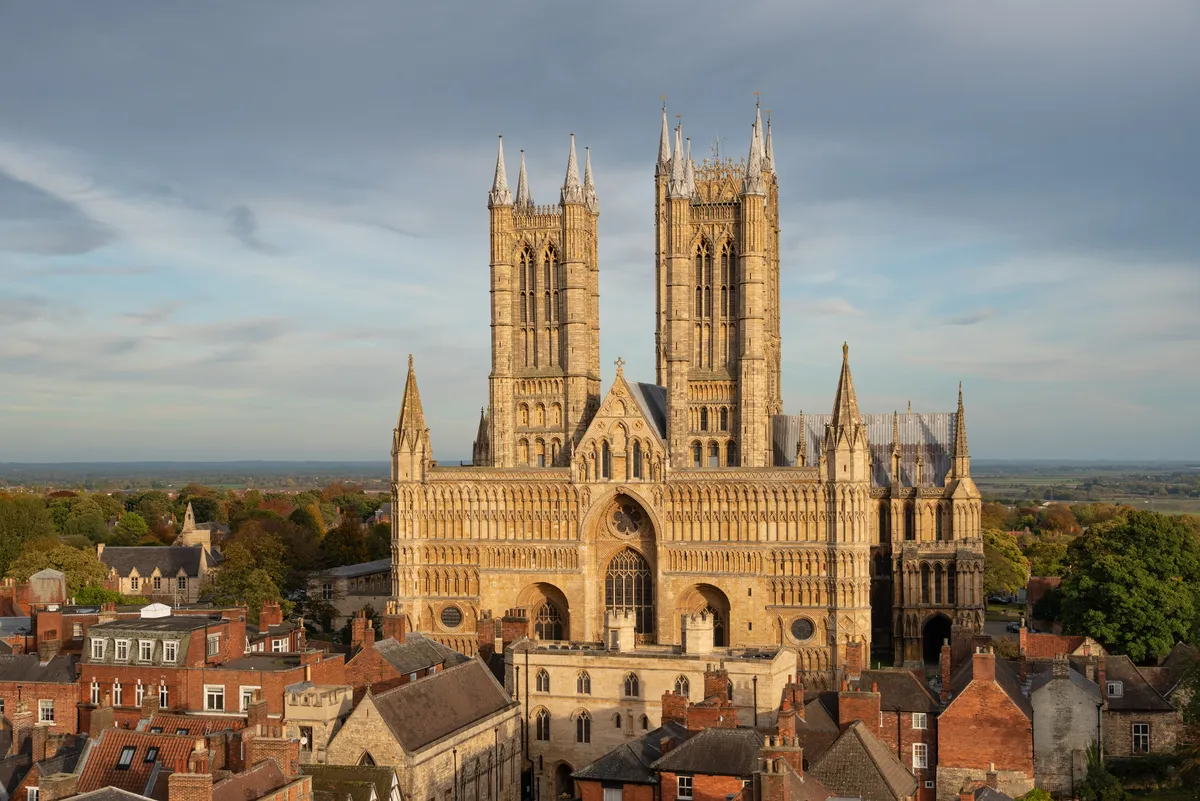
Visible on its bluff for miles around, on a clear day even as far as Norfolk. Its central tower, when still with a spire, was reputedly the tallest building in the world, higher than the great pyramid of Giza. Its west front screen dominates the approach. Three arched Norman openings, purportedly gateways to Heaven, are flanked by row upon row of early-gothic arcading, repetitive, relentless and powerful.
Lincoln’s interior is the work of its most eccentric bishop, Saint Hugh. His nave is a masterpiece of the gothic style, his crossing dominated by two magnificent rose windows.
While your there make sure you take time to tour the ancient city of Lincoln
Wells Cathedral
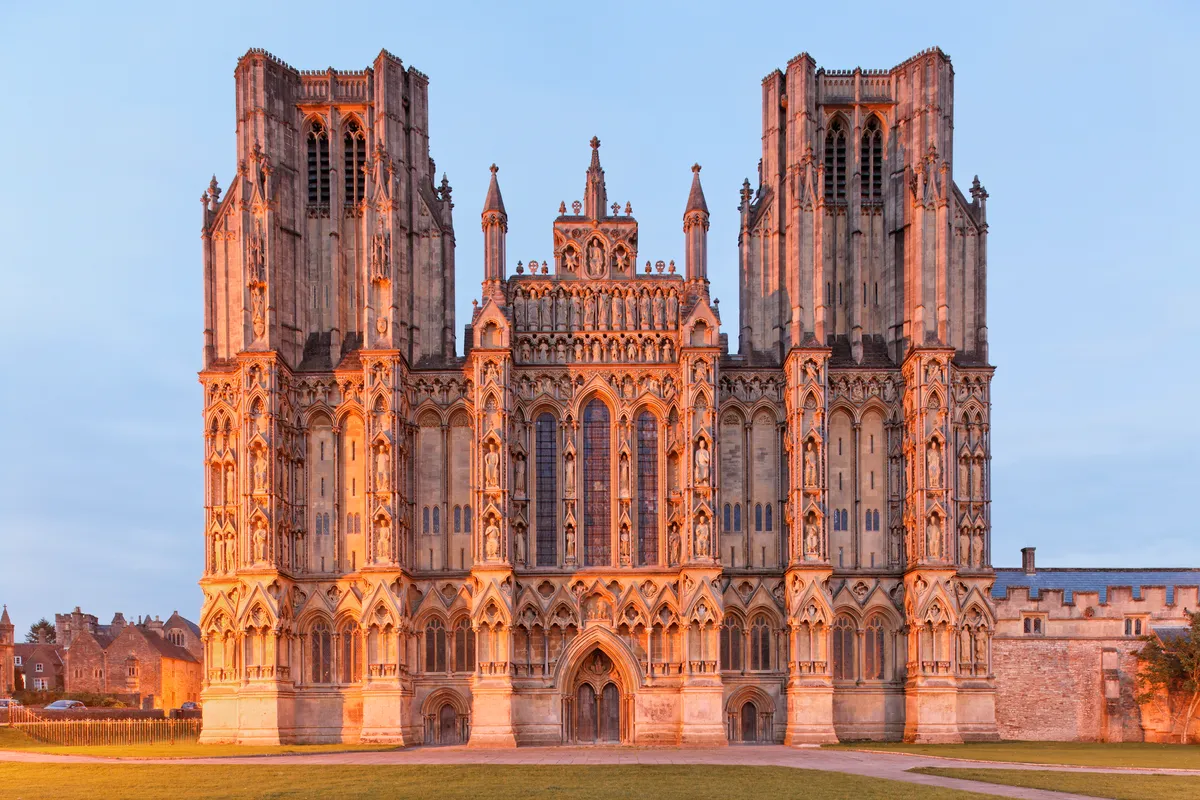
The most complex and rewarding of all English cathedrals, Wells Cathedral in Somerset greets visitors with a west front that is a battered gallery of gothic art, surely the finest wall in England. Inside, the nave is dominated by its famous scissor arches inserted to prop up the central tower and eerily modernist in appearance.
Other Wells treasures include the chapter house. Its sensational palm-tree column of curving ribs makes this the finest room in England.
Ely Cathedral
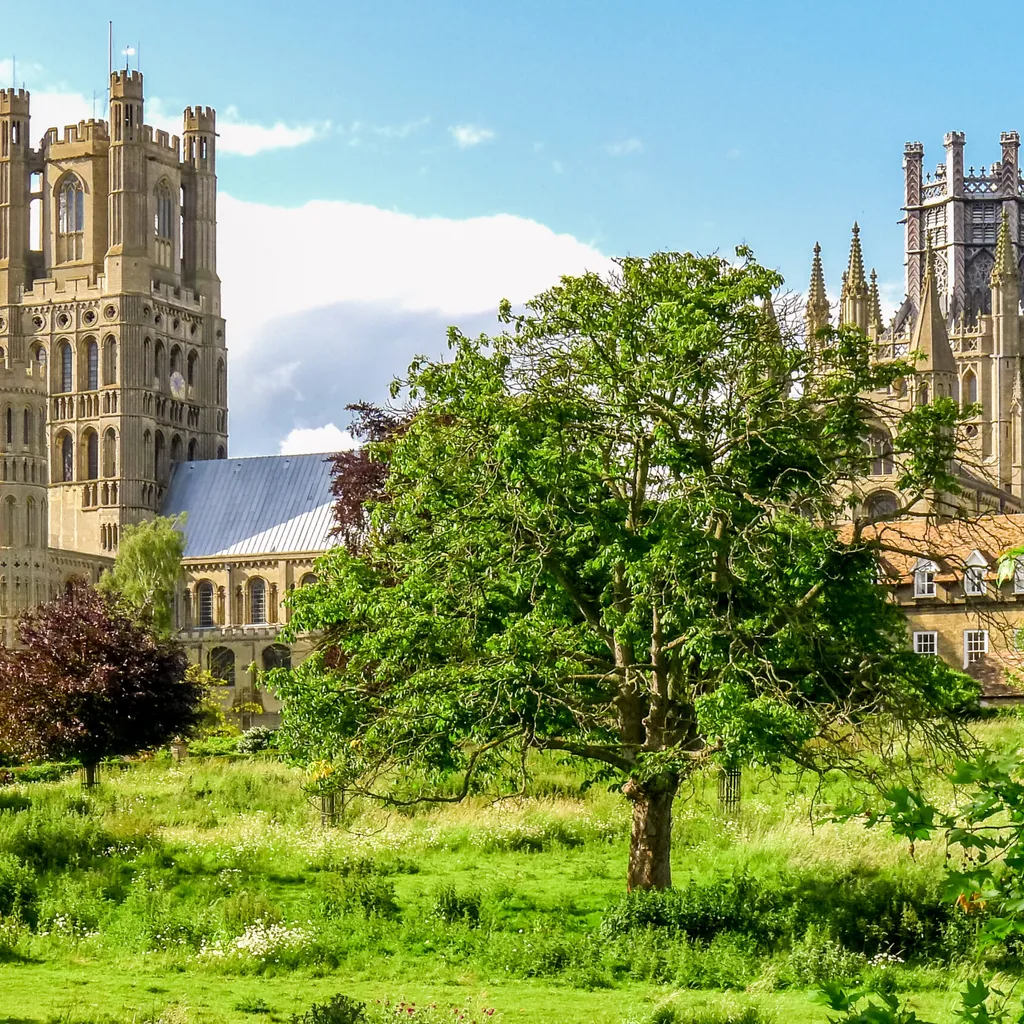
Ely is the Ship of the Fens. It can be seen floating on a mist rising from the damp lowland round about. Ely’s interior is an astonishing sight, an avenue of Norman columns leading to a crossing that, as we approach, opens into a sensational octagonal, rising to the lantern. Seen from below this is a swirl of geometrical shapes, bursting upwards towards the sky. We can climb this lantern and look down on this scene from above; not for the acrophobic.
Ely is a masterpiece of 19th-century restoration by Sir George Gilbert Scott and a gallery of the finest Victorian stained glass in the land.
Westminster Abbey
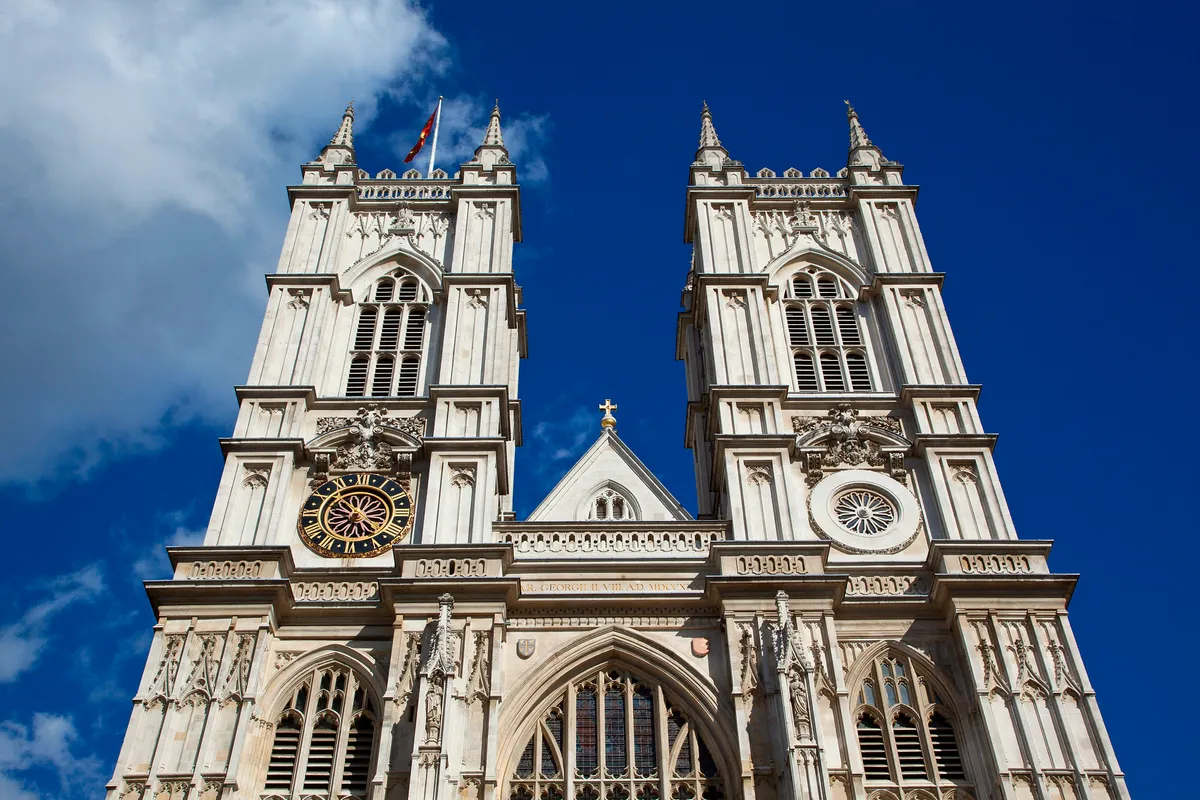
Though strictly an abbey, Westminster has long been cathedral to the nation, resplendent on occasions of state and for national rituals of marriage and memorial. It predated the Norman conquest and is the most French of cathedral designs, long, tall and narrow.
Its interior is dominated by the space arranged by Edward the Confessor for state ceremonial. Today it is mostly visited for its tombs – a fascinating, tumbling, chaotic crowd of the nation’s great and good (royal, political, cultural and, sometimes, inexplicable).
- Westminster Abbey Choir: a guide to the world-famous Abbey choir
- Westminster Abbey organ: all you need to know about Abbey's magnificent Harrison & Harrison organ
More historic buildings to visit
